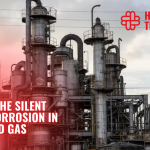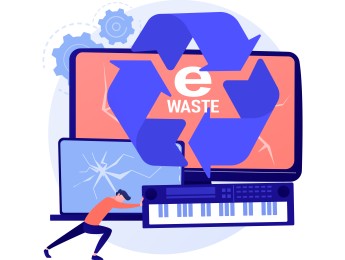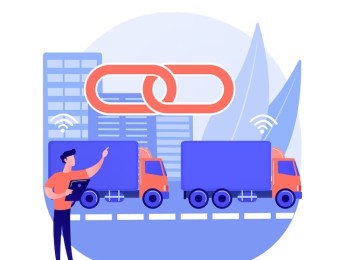Proper waste management is essential for any business. It keeps your employees safe and your workplace professional and reduces your costs regarding environmental damage. The waste removed from your workplace will most likely end up in landfills, meaning that you’re actively contributing to environmental pollution.
Putting waste management first within your business will make your business appear more professional to clients, customers, and future employees and help you reduce your costs, gaining a greater return on investment.
It’s also essential to ensure that all your employees understand the benefits of recycling, reusing, and reducing waste within the workplace to make it an eco-friendly environment. Whether this means implementing a recycling procedure, reducing your office waste and printing or employing a top-of-the-range facilities management team to handle your waste, it’s important for your business to ensure you’re doing your bit for the environment.
Upon completion of this course, participants will be able to:
- Identify the biggest waste streams in your working environment.
- Implement lean processes to reduce your waste.
- Comply with waste management procedures and understand the consequences of mishandling solid waste.
- Create an eco-friendly environment by motivating your employees.
- Understand the effects that waste can have on the environment.
- Ensure your clients, customers, and employees understand the need for change.
- Understand the life-cycle of waste and the current practices in waste management.
- Demonstrate the 7Rs of waste management to create space for continuous improvement.
- Evaluate your current waste management offering.
- Implement new processes and plan an environment-first framework.
- Review your new procedures and takeaway lessons for future change.
This course is designed for anyone responsible for waste management, health and safety procedures, or operational change within a business. However, it would be most beneficial for:
- Business Owners
- Managing Directors
- Operations Managers
- Health & Safety Officers
- Auditors
- HR Personnel
- Planning Managers
- Facilities Managers
- Warehouse Managers
- Team Leaders or Supervisors
This course uses a range of adult learning methods, including insightful presentations and practical group work, to help business owners, managers, and employees understand the importance of waste management and implement a program for change.
The course will include practical activities, quizzes, group seminars, and discussions to help you understand the necessities of waste management. It will also include real-life case studies demonstrating the implications of not managing waste and a planning framework for future-proofing your business.
Day 5 of each course is reserved for a Q&A session, which may occur off-site. For 10-day courses, this also applies to day 10
Section 1: The Current State of Waste Management
- The current state of global waste management.
- The importance of waste management.
- What is waste?
- Climate change and environmental factors.
- The key elements of a waste management system.
- ISO 1400:2015.
Section 2: Waste Prevention Policies & Legislation
- The law, codes of practice, and your responsibilities.
- National and global policies.
- Why does waste management have global social consequences?
- Keeping up to date with policy changes.
- The United Nations’ 12 Toxic Chemicals Agreement.
Section 3: Recycling & Upcycling
- Environmental impacts and considerations.
- Lean methods of waste management.
- Recycling and the 5Cs.
- Waste reduction - recycle, reuse and reduce.
- The Workplace Hazardous Materials Information System (WHMIS).
Section 4: Waste Recovery
- Integrated waste recovery management.
- Recruiting a great facilities team.
- Waste incineration and energy recycling.
- Municipal waste implications.
- Materials Recovery Facilities (MRF).
Section 5: Waste Disposal
- Long-term waste storage and disposal.
- Short-term waste disposal.
- Understanding the seriousness of landfill usage.
- Sustainable landfill options.
- In-vessel composting (IVC).
- The science of recycling.
Section 6: Hazardous Waste
- What is hazardous waste?
- Environmental and waste auditing.
- Hazards and risks of waste storage and collection.
- AD food waste.
- HAZID hazard identification.
- HAZOP hazard operability.
Section 7: Pollution Prevention
- Pollution Prevention Opportunity Assessment (PPOA).
- Practical waste streams.
- Contamination ethics
- ISO 18001 and 9001.
- Zero Waste (ZW) and Zero Liquid Discharge (ZLD) methods.
- Oil-related pollution.
- Tanker design.
- Globally harmonised systems (GHS).
Section 7: Your Plan for the Future
- Energy efficiency and sustainability.
- Achieving a competitive advantage.
- Using your eco-friendly methods as advertising.
- Ensuring compliance and monitoring change.
- Using waste reduction to improve productivity and efficiency.
- Communicating social, ethical, and environmental issues to stakeholders and partners.
Section 8: Management & Motivation
- Generating buy-in for an environment-first change plan.
- Effective motivation and delegation.
- Developing a management system.
- Selecting the right leadership team to carry the project forward.
- Auditing, risk assessments, and recorded keeping.
- Feedback and review.
- Staying ahead of the game.
Upon successful completion of this training course, delegates will be awarded a Holistique Training Certificate of Completion. For those who attend and complete the online training course, a Holistique Training e-Certificate will be provided.
Holistique Training Certificates are accredited by the British Assessment Council (BAC) and The CPD Certification Service (CPD), and are certified under ISO 9001, ISO 21001, and ISO 29993 standards.
CPD credits for this course are granted by our Certificates and will be reflected on the Holistique Training Certificate of Completion. In accordance with the standards of The CPD Certification Service, one CPD credit is awarded per hour of course attendance. A maximum of 50 CPD credits can be claimed for any single course we currently offer.
- Course Code PO2-104
- Course Format Classroom, Online,
- Duration 5 days











